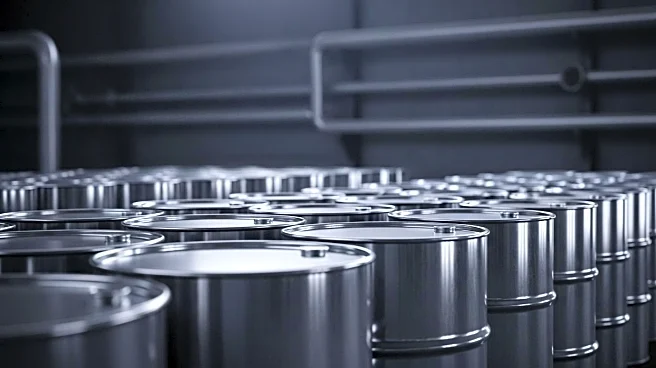What is the story about?
What's Happening?
OPEC+ is set to approve another oil production increase of at least 137,000 barrels per day in November. This decision follows a reversal of the group's previous output cuts, with quotas already raised by over 2.5 million barrels per day since April. The move aims to regain market share and respond to pressure from President Trump to lower oil prices. OPEC+ includes the Organization of the Petroleum Exporting Countries, Russia, and other allies, collectively producing about half of the world's oil.
Why It's Important?
The planned increase in oil production by OPEC+ is significant as it seeks to stabilize and potentially lower global oil prices, which have been volatile. This decision impacts global energy markets, influencing fuel prices and economic conditions worldwide. The move also reflects geopolitical dynamics, with OPEC+ responding to external pressures and market demands. The increase could benefit oil-importing countries by reducing energy costs, while oil-exporting nations may face challenges in maintaining revenue levels.
What's Next?
OPEC+ will finalize the November production increase at a meeting on October 5. The group's ability to meet production targets will be crucial, as many members are already operating at capacity. The outcome will affect global oil supply and pricing, with potential implications for energy policies and economic strategies.
Beyond the Headlines
The decision underscores the complex interplay between energy production, geopolitical influences, and economic strategies. OPEC+'s actions may also affect environmental policies and the transition to renewable energy sources, as countries balance energy needs with sustainability goals.















